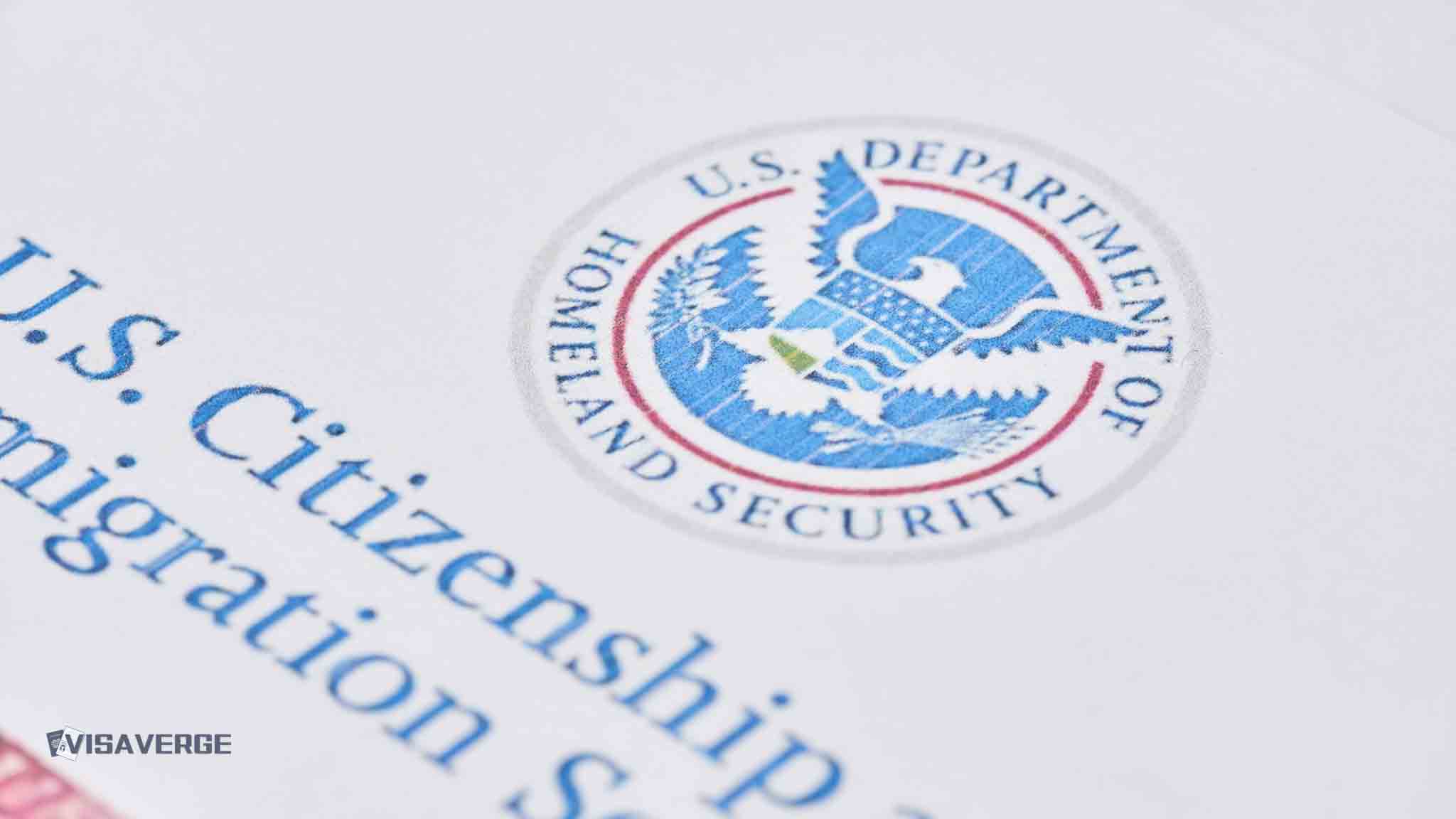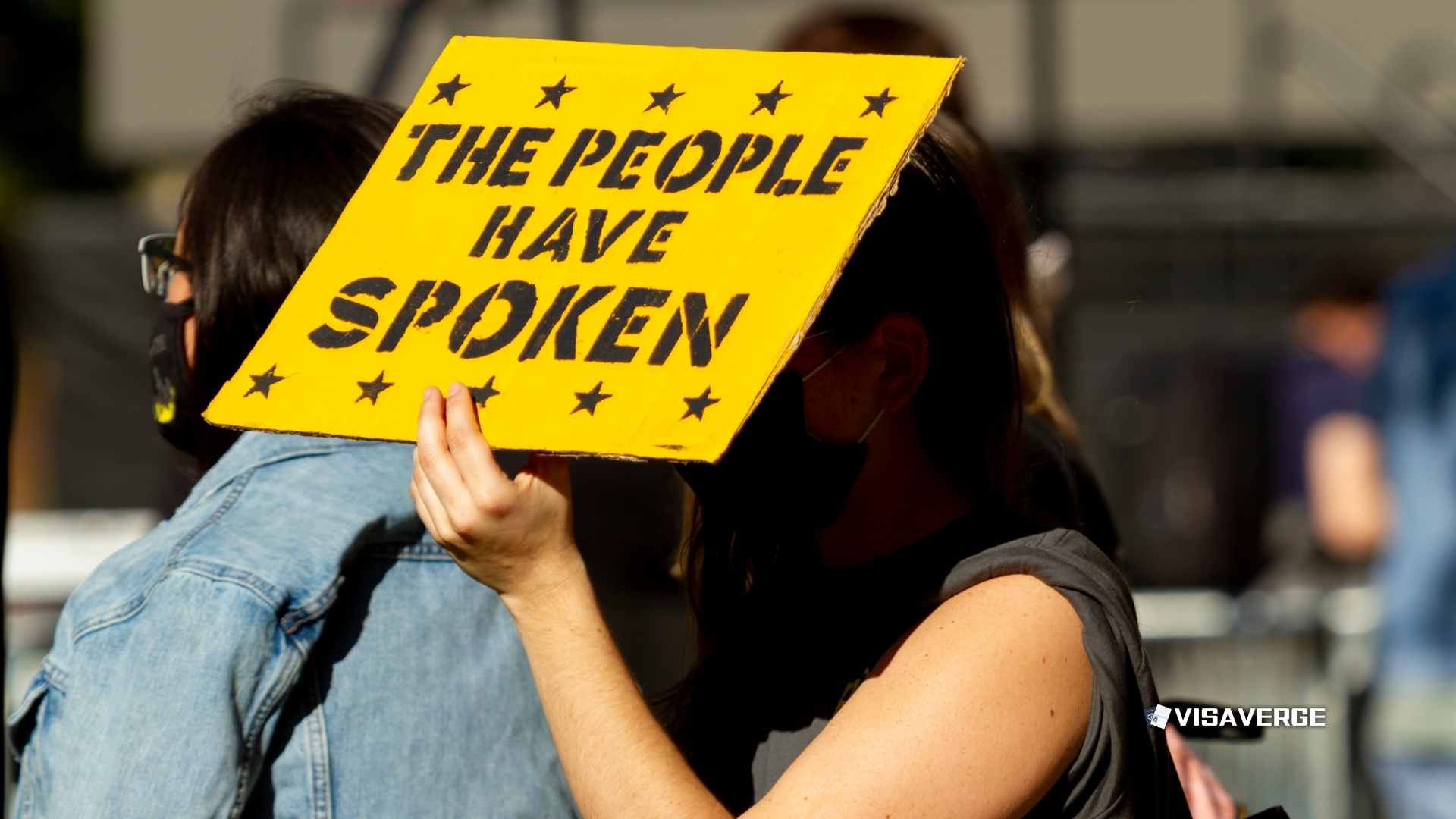Key Takeaways
• On June 19, 2025, Judge McConnell blocked Trump policy tying federal transport funds to immigration enforcement.
• The injunction applies to all states, stopping federal government from enforcing immigration conditions on grants.
• Twenty Democratic-led states filed lawsuit arguing only Congress can set conditions on federal funding.
On June 19, 2025, a major legal decision reshaped the ongoing debate over immigration enforcement and federal funding in the United States 🇺🇸. U.S. District Judge John McConnell issued a preliminary injunction that blocks the Trump administration from making state cooperation with federal immigration authorities a requirement for receiving billions in federal transportation funding. This ruling, which came after a lawsuit filed by 20 Democratic-led states, immediately halts the enforcement of these new funding conditions while the case moves forward in court.
This development is significant for state governments, immigrant communities, and anyone concerned about the relationship between federal power and state autonomy. The judge’s decision not only affects how transportation funds are distributed but also highlights the limits of executive authority in shaping immigration policy through financial pressure.

What Happened: The Court’s Decision
Judge McConnell’s ruling came in response to a policy announced by the Trump administration in April 2025. The administration, led by Transportation Secretary Sean Duffy, warned that states refusing to help Immigration and Customs Enforcement (ICE) could lose access to federal transportation grants. These grants are essential for maintaining roads, airports, and other critical infrastructure.
The judge found that the administration’s policy was “arbitrary and capricious,” meaning it was not based on a clear or reasonable explanation. He also said that Congress did not give the Secretary of Transportation the power to add immigration enforcement requirements to transportation grants. As a result, the court issued a preliminary injunction, which is a temporary order that stops the policy from taking effect while the lawsuit continues.
Key points from the ruling:
- Date of injunction: June 19, 2025
- Scope: Applies to all states and their subdivisions
- Immediate effect: Stops the federal government from enforcing immigration-related conditions on transportation funding
Why This Matters: Billions in Funding and State Autonomy
The Trump administration’s policy put billions of dollars in federal transportation funding at risk for states that have so-called “sanctuary” policies. Sanctuary policies are local rules that limit cooperation with federal immigration authorities, often to build trust with immigrant communities and encourage people to report crimes without fear of deportation.
By tying funding to immigration enforcement, the administration hoped to pressure states into helping ICE. However, the court’s decision means that states can continue to receive transportation funds without changing their local policies or assisting with federal immigration enforcement.
According to analysis by VisaVerge.com, this ruling preserves the status quo for now, allowing states to move forward with infrastructure projects and public safety initiatives without the threat of losing essential funding.
Stakeholders: Who Is Affected?
State Governments
For state and local governments, the injunction is a relief. It means they can keep receiving federal transportation grants without being forced to change their approach to immigration enforcement. This is especially important for states with large immigrant populations or those that have adopted sanctuary policies.
Immigrant Communities
For immigrants, especially those living in sanctuary jurisdictions, the ruling provides some protection. Advocates argue that when local police are not required to work with ICE, immigrants are more likely to report crimes and cooperate with law enforcement, which can improve public safety for everyone.
Federal Government
The Trump administration, on the other hand, sees sanctuary policies as a barrier to enforcing immigration laws. By trying to use federal transportation funding as leverage, the administration hoped to push states into cooperating with ICE. The court’s decision limits the executive branch’s ability to use funding as a tool for enforcing its immigration agenda.
Legal Community
Legal experts and scholars have closely watched this case because it raises important questions about the separation of powers. The Constitution gives Congress—not the president or executive agencies—the authority to decide how federal funds are distributed and what conditions can be attached to them.
Background: How Did We Get Here?
The Policy Announcement
In April 2025, Transportation Secretary Sean Duffy announced that the Department of Transportation would require states to cooperate with ICE as a condition for receiving federal transportation grants. Secretary Duffy stated on social media that the department “will NOT fund rogue state actors who refuse to cooperate with federal immigration enforcement.”
The Lawsuit
Twenty states, led by Democratic governors and attorneys general, quickly filed a lawsuit. They argued that the administration’s policy was illegal because Congress had not given the Secretary of Transportation the power to add these conditions. The states also said the policy would harm public safety by making immigrants less likely to trust local police.
The Court’s Response
Judge McConnell agreed with the states, at least for now. He issued a preliminary injunction, which is a temporary order that blocks the policy while the lawsuit is decided. The judge said that the administration’s policy was not supported by law and that only Congress can set conditions on federal grants.
Previous Attempts
This is not the first time the Trump administration has tried to tie federal funding to immigration enforcement. During President Trump’s first term, similar efforts to withhold funds from sanctuary jurisdictions were repeatedly blocked by the courts. Judges found that only Congress could set such conditions, not the executive branch.
Legal and Policy Implications
For States
The injunction means that states can continue to receive federal transportation funding without being forced to help ICE. This allows them to keep working on important infrastructure projects and public safety programs.
For Immigrant Communities
The ruling protects sanctuary policies, which many advocates say are important for building trust between immigrant communities and local law enforcement. When immigrants feel safe reporting crimes or cooperating with police, it can make communities safer overall.
For Federal Policy
The decision limits the ability of the executive branch to use federal funding as a way to enforce its immigration priorities. It reinforces the idea that only Congress can decide how federal money is distributed and what strings are attached.
For Other Federal Grants
The case also has implications for other types of federal funding. The Department of Homeland Security has tried to add similar conditions to other grants, and those policies are also being challenged in court.
Multiple Perspectives
Trump Administration
The Trump administration argues that sanctuary policies make it harder to enforce immigration laws and threaten public safety. They believe that states should be required to help federal authorities remove people who are in the country without permission.
Plaintiff States and Advocates
The states that sued, along with immigrant rights advocates, say that tying funding to immigration enforcement is illegal and undermines local control. They argue that these policies damage trust between police and immigrant communities, making everyone less safe.
Legal Experts
Most legal experts agree that Congress, not the executive branch, has the power to set conditions on federal grants. The courts have repeatedly blocked similar efforts in the past, citing the Constitution’s separation of powers and the Spending Clause.
Academic View
Don Kettl, professor emeritus at the University of Maryland, has said that the administration’s approach seems designed to create uncertainty and pressure states into compliance. Policy analysts also note that the rapid changes in executive orders and funding freezes have caused confusion for states and organizations that rely on federal support.
What Happens Next? The Road Ahead
Continued Litigation
The preliminary injunction is not the final word. The lawsuit will continue, and the court will eventually make a final decision. Both sides can appeal, and the case could end up at the Supreme Court if the issues are not resolved in lower courts.
Possible Supreme Court Review
Because the case involves important questions about federal power and state rights, it could be reviewed by the Supreme Court. This would set a national precedent for how federal funding can be used in relation to immigration enforcement.
Ongoing Policy Uncertainty
The Trump administration may try other strategies or issue new executive orders to achieve its goals. However, legal challenges are likely to continue, and states will probably keep fighting any attempts to tie funding to immigration enforcement.
Impact on Other Grants
Similar legal battles are happening over other types of federal funding, including grants managed by the Department of Homeland Security. The outcome of this case could influence how those cases are decided.
Practical Guidance for Stakeholders
For State and Local Officials
- Stay informed: Monitor updates from the U.S. Department of Transportation and your state attorney general’s office for the latest information on grant requirements and legal developments.
- Maintain current policies: The injunction means you do not need to change your approach to immigration enforcement to keep receiving transportation funds, at least for now.
- Prepare for change: Be ready to adjust if the courts issue a final decision that changes the rules.
For Immigrant Communities
- Know your rights: Sanctuary policies remain in place in many areas, and local police are not required to cooperate with ICE unless the law changes.
- Seek help: Legal aid organizations can provide information and support if you have questions about your rights or fear of deportation.
For Employers and Contractors
- Project planning: With funding secure for now, infrastructure projects can continue as planned. However, keep an eye on legal developments that could affect future funding.
For Policy Advocates
- Engage with lawmakers: Share your views with state and federal representatives to help shape future policy.
- Educate communities: Help immigrants and the public understand what the court’s decision means for their daily lives.
Official Resources
For more information about federal transportation grants and updates on this issue, visit the U.S. Department of Transportation’s official grants page.
Summary Table: Key Facts
| Date | Event/Development | Stakeholders Involved | Status/Outcome |
|---|---|---|---|
| April 2025 | Policy announced to tie funding to ICE cooperation | Trump administration, 20 states | Lawsuit filed |
| June 19, 2025 | Preliminary injunction issued by Judge McConnell | Federal court, 20 states | Policy blocked pending litigation |
| Ongoing | Similar challenges to other grant conditions | States, DHS, courts | Litigation continues |
Conclusion: The Balance of Power and the Future of Immigration Policy
The federal judge’s decision to block the Trump administration from conditioning federal transportation funding on state cooperation with immigration enforcement is a major development in the ongoing debate over immigration policy and federal-state relations. It preserves access to critical funds for states and localities, protects sanctuary policies, and reinforces the constitutional principle that Congress—not the executive branch—controls the purse strings.
As reported by VisaVerge.com, this case is part of a larger pattern of legal battles over the use of federal funding to influence state and local immigration policies. The outcome will have lasting effects on public policy, community trust, and the balance of power between the federal government and the states.
While the injunction is only temporary, it sets the stage for further court battles and possible Supreme Court review. Stakeholders across the country should stay informed and prepared for changes as the legal process unfolds. For now, the ruling ensures that states can continue to focus on infrastructure and public safety without being forced to change their approach to immigration enforcement.
If you have questions about how this decision affects your state or community, contact your state attorney general’s office or visit the U.S. Department of Transportation’s website for the latest updates.
Learn Today
Preliminary Injunction → A temporary court order preventing enforcement of a policy during ongoing litigation.
Sanctuary Policies → Local rules limiting cooperation with federal immigration authorities to protect undocumented immigrants.
Immigration and Customs Enforcement (ICE) → Federal agency responsible for enforcing immigration laws and deportations in the United States.
Transportation Grants → Federal funds provided to states for maintaining roads, airports, and infrastructure projects.
Separation of Powers → Constitutional principle dividing government powers among legislative, executive, and judicial branches.
This Article in a Nutshell
A federal judge blocked the Trump administration’s plan to withhold billions in transportation funding from states resisting immigration enforcement. The ruling protects sanctuary policies, maintains funding for infrastructure, and reinforces that only Congress can impose grant conditions, preventing executive overreach in immigration policy through financial pressure.
— By VisaVerge.com













